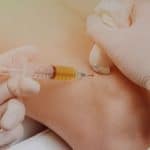Have you complained to your doctor about not feeling well, either physically or mentally? With symptoms ranging from moodiness, lethargy, weight gain, hair loss, cyclical symptoms- headaches, acne, water retention, depression & anxiety- and overall just not feeling your best. Your well-meaning primary care doctor runs some standard blood tests and upon follow up, tells you- “You’re healthy. Everything came back normal.”
Well, I’ve been there. Many times. Its one of the reasons I got into naturopathic medicine. Testing hormones has either been ignored or not accepted as a standard practice for assessing health and symptoms. Since your hormones are the lens in which you experience the world and they also govern many aspects of how your body functions on a daily basis, I would argue that they are vital piece of any adult’s health puzzle.
Here’s my approach to assessing hormonal health…
Favorite Testing Methodology:
Dried Urine Testing for Comprehensive Hormones, otherwise referred to as the DUTCH test. The primary reason this test rocks is because it easily allows for multiple collection points (ie peeing on piece of paper 4-5 times/day) of hormonal data over the course of about 17-18 hours from the comfort of your own home. Hormones are dynamic, they fluctuate throughout the day, thus measuring hormones at various times, gives you the most comprehensive information about your hormone levels. Another advantageous aspect of the test, is that it accounts for metabolites, which are the intermediary, break-down products of hormones. These metabolites matter because they can cause symptoms when imbalanced and throw your body into hormonal chaos. Lastly, this test is comprehensive- it tests for sex hormones- estrogen, progesterone, testosterone- as well as adrenal hormones- cortisol, DHEA- all in one test, giving you a complete picture. This test can be performed on both men & women.
Free data collection:
Be your own detective at no additional cost. Any female who walks into my office, complaining of symptoms suggestive of hormonal imbalance, leave with the recommendation to start reporting their symptoms on a period or other tracking app. This approach empowers woemnThe first step is to note whether your menstrual cycle is regular and if it runs short (25 days or less) or long (35 days or more). The 2nd step is to track cyclical symptoms such as headaches, acne, mood swings, anxiety, depression, insomnia, night sweats, etc. Reconciling symptoms, collected throughout the month(s), with lab results, is the best way to individualize hormonal health strategies.
Blood testing pros & cons:
For patients who want to know the absolute most about their hormones, I’ll often order additional blood work, as the 3rd set of data. Blood tests are a a bit more convenient, since they are performed in office and only require one collection, and often are covered by insurance. Blood tests also provide us with additional information, such as looking for markers suggestive of menopause (FSH, LH, anti-mullerian hormone); comprehensive thyroid testing (another crucial hormone), as well as SHBG, a protein which can bind up free hormones, rendering them inactive in the body. This test can be performed on both men & women.
Combining all 3 of these assessments and data collection, is what I call the Hormone Trifecta. It leaves no stone un-turned and provides us with the most comprehensive information for designing a thorough and individualized treatment plan.






